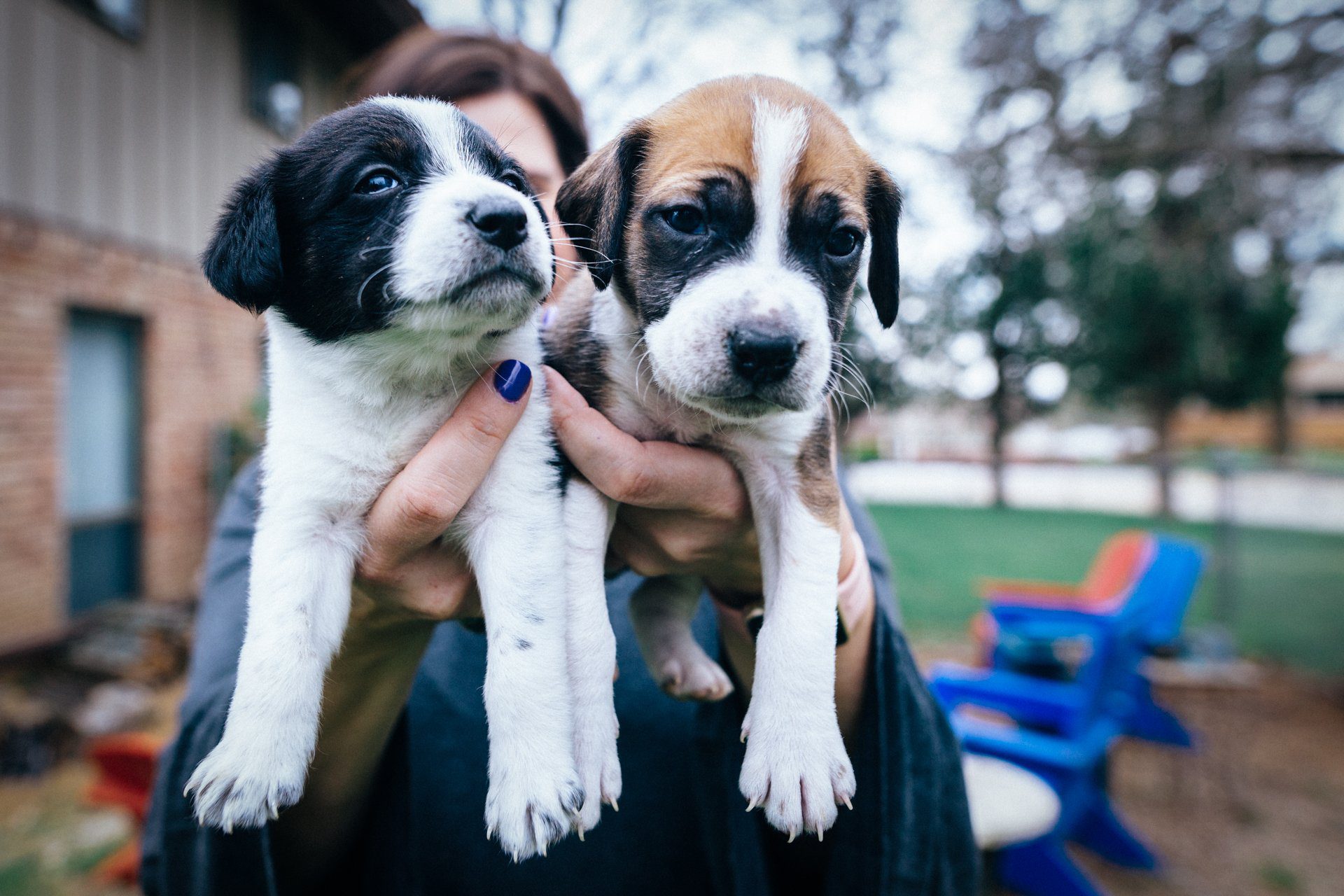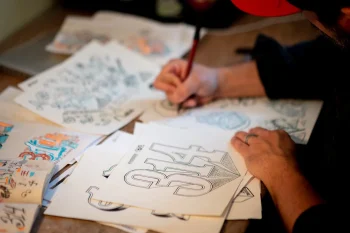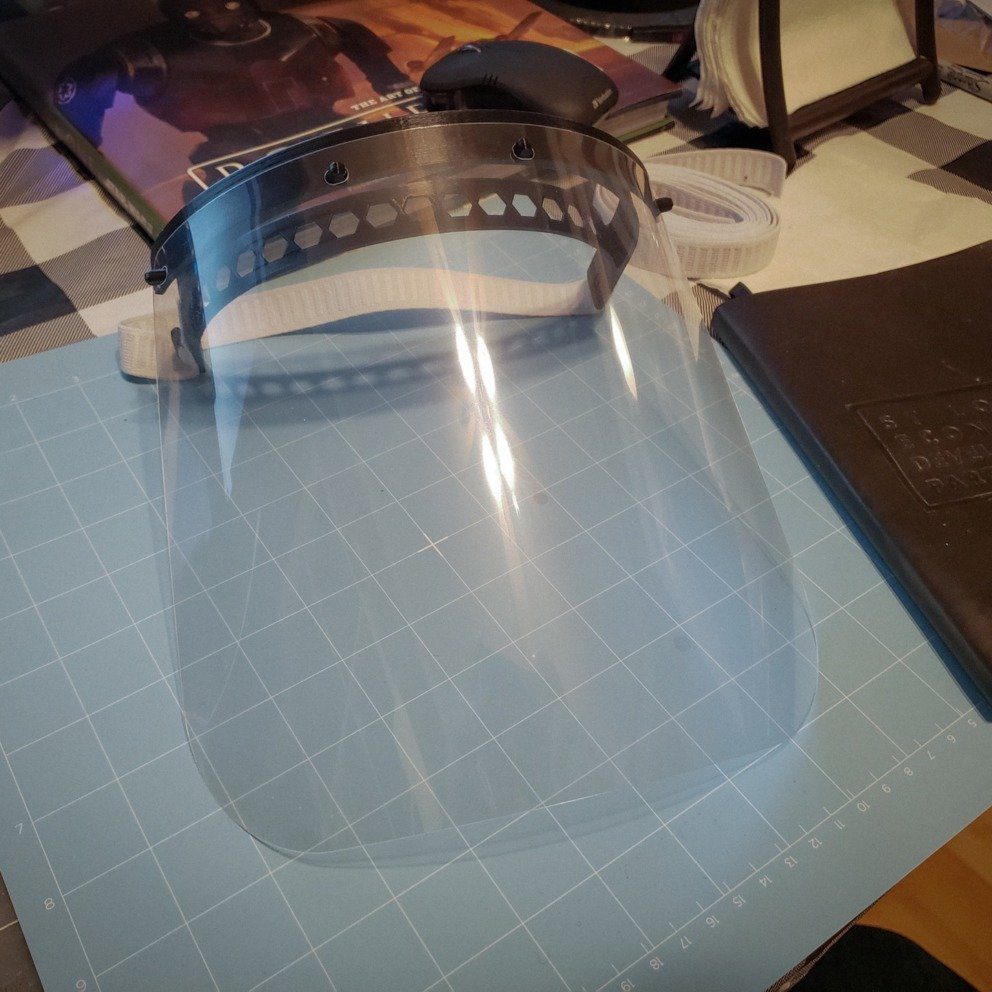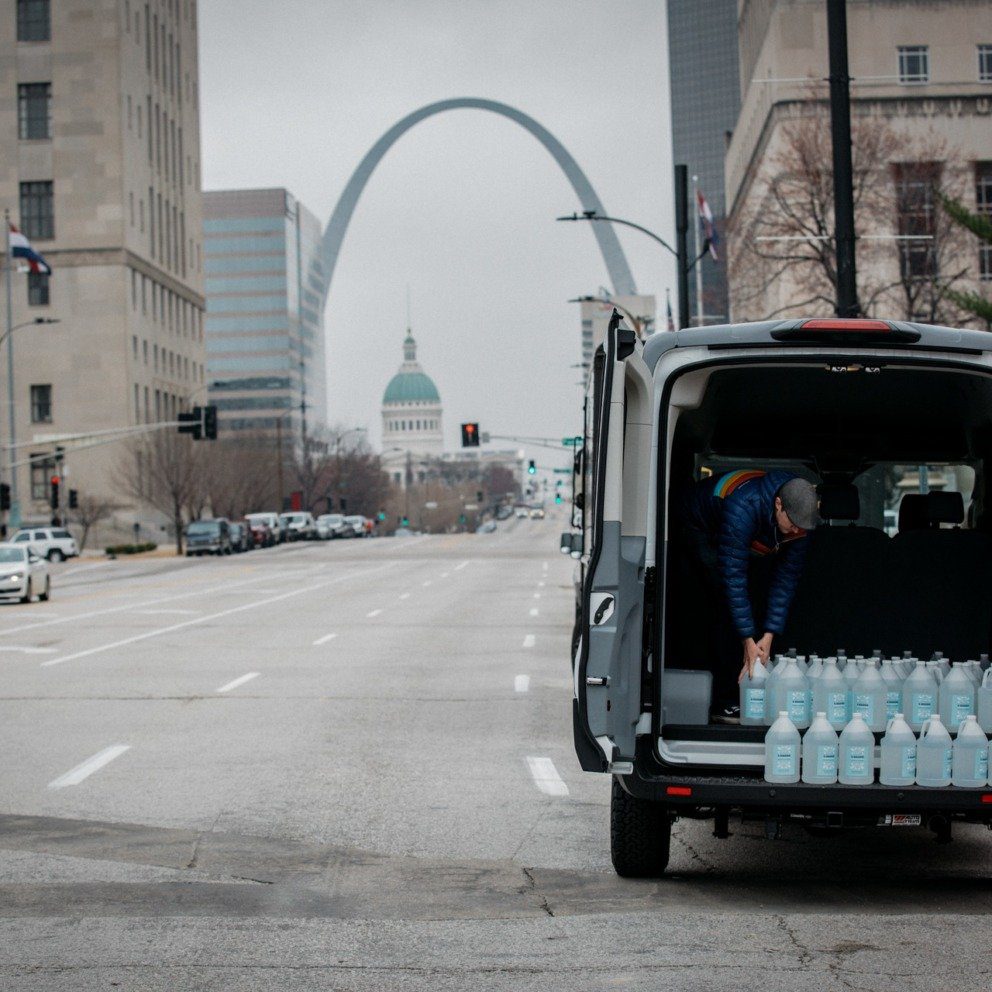Puppies in a Pandemic
What happens to unadopted pets during a crisis? St. Louis stepped up to foster them - including one family taking on eight puppies.
There were eight of them. Eight puppies, less than three weeks old, their faces scrunched, their limbs comically oversized, and all of them snuggling their potato-proportioned bodies against their mother inside the small pen set up in a corner of Mindy Copp’s living room.
“I had to convince my husband that we could do eight,” she begins, explaining how her family had gone from being composed of two adults, three teens and one pet dog to one now hosting a new mom and her octuplet fur babies.
“We sat on it for a few days. I just couldn’t stand the fact they’re sitting there in the kennel locked up,” Copp says. “So we decided to go for it.”
Only three weeks ago, the puppies and their mother were among the animals still being held at the Animal Protective Association shelter in the St. Louis suburb of Brentwood. The mother, dubbed by the APA “Mary Jane,” had been discovered in a rural area and brought to the shelter, where she later gave birth. Those puppies, however, entered a world in transition. On March 17, as governments and organizations began to adjust to the necessities of social distancing, the APA announced that it was closing its shelter to the public and shutting down normal adoption procedures.
And in the face of that challenge, it would be the public – and people like Mindy Copp – who would help the APA overcome it.
In just a few days, the organization nearly emptied its shelter, completing 40 adoptions and fostering more than 100 pets. It was a task accomplished by a “skeleton crew” of dedicated staff, says APA Director Sarah Javier, describing the frenzied days of preparation and logistics to find foster families and adopters.
– Sarah Javier
“Everyone had to rise to the occasion,” Javier says. “The community, they knew the APA needed them, and our phones were ringing off the hook. It was so humbling and so reassuring when people stepped up. No matter what’s happening, it shows you the good in the world, and St. Louis really has that.”
At the same time, Javier and her stripped-down staff – operating without their usual cadre of volunteers – were faced with mammoth task of coordinating the needs of every animal being fostered: Pets had to be microchipped, and each had to be sent off with food and medication. Some pets were heading to first-time fosters who needed extra training and guidance.
It required deliberation and patience, even in a time of chaos.
“We all understood the urgency,” Javier notes. “But you don’t want to rush through the directions and the process. You want to remain calm and you want people to feel really positive about the experience and clear about what you want them to do.”
Curbside Pet Pickups
Social distancing measures haven’t stopped the work of shelters like the Humane Society of Missouri, which launched a “curbside adoption” process late last month in St. Louis The process allows prospective owners to view adoptable pets online and complete the application and interview process remotely. After that, all they have to do is pull up to the curb and complete the hand-off.
“Adapting our adoption plan means we’re taking care of those animals that are with us at this moment,” says Debbie Hill, vice of president of operations at the Humane Society of Missouri. “You have to look at the scenario, and then adapt and rise. We’ll keep doing this as long as we have animals and the situation in the community hasn’t changed.”
For shelters, the pandemic hasn’t changed the overall need to place animals in homes. There are lost dogs turned in every week. On a recent morning, Hill says her staff found a pet left in a crate at the front door. It was an example, she suspects, of a pet owner who could no longer take care of their pet. As ever, St. Louis’ animal shelters are a refuge for displaced animals.
“We have animals in our shelters every single day,” Hill says. “That mission continues as we shift to respond to the disaster at hand.”
No matter the disaster, it’s clear that St. Louis is a region of pet lovers. Since March 23, Hill notes proudly, Humane Society’s new curbside program has recorded more than 230 adoptions.
It’s a similar story at the APA. On March 22, in an exuberant Facebook post, the APA announced, “EVERY SINGLE PET THAT CAN BE PLACED IN FOSTER HAS BEEN!!!” – and that same day, eight puppies arrived at the home of Mindy Copp.
Copp’s three teenage children are “elated” to be able to spend time with the puppies, and her husband, who works in the medical field, communes with the puppies after his long days at work.
“It’s been a great distraction. The kids can’t wait to wake up in the morning to come down and hold them. My husband comes home and goes down and takes a puppy or two and sits on the couch with them.”
As for the eight puppies?
“They’re pretty easy at this point,” Copp says. “I think it’s been good therapy for all of us.”
Join the Story
- View the APA’s adoptable pets here.
- Visit the Humane Society of Missouri’s website to learn about curbside adoptions.
- Use #STLMade4Good and join the #STLMade4Good Facebook group to share acts of kindness.





